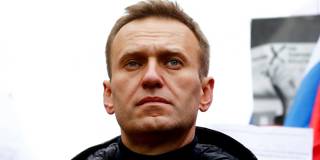ANTARA HALDAR

The world was stunned, though perhaps not surprised, by the death this month of Alexei Navalny, the Russian opposition politician and Kremlin critic, in an Arctic penal colony. The converted gulag in which he died, called “Polar Wolf,” reserved for hardened criminals rather than political prisoners, was known for its harsh conditions, and Navalny had been tortured extensively.
Still, the circumstances of the sudden death of Navalny – who had made a cheerful court appearance the previous day – were mysterious. At 47, Navalny was still young, and the plans he was actively making suggested that he remained hopeful for the future. So, the signs don’t point to a death from “natural causes,” as the Russian authorities claimed.
Navalny was, of course, living on borrowed time after years exposing the corruption of President Vladimir Putin’s regime. In 2020, the most serious attempt on his life – a near-fatal poisoning with a military-grade nerve agent, Novichok – failed when he was flown to Germany for emergency treatment. Aware of the fate that awaited him in a country where the line between a prison sentence and a death sentence is dangerously thin, he nonetheless chose to return to Moscow, where he was arrested on arrival and ultimately handed a 19-year prison term.
The prime suspect in Navalny’s death is obvious. “Putin is responsible,” said US President Joe Biden. Other world leaders and a chorus of commentators have gone on the record in agreement. Navalny, an adept grassroots organizer who ran for mayor of Moscow in 2013 and president in 2018, was by far the most credible and charismatic voice to speak out against Putin, calling his party one of “swindlers and thieves.”
Even behind bars, Navalny remained a credible threat to Putin. So, his death, suspiciously close to the presidential election in March, in which Putin is campaigning for a fifth term in office (having removed constitutional term limits in 2020), would point, at least circumstantially, to a clear culprit. But, while Putin’s role in Navalny’s death is all but undeniable, there is a silent accomplice whose part in this tragedy must not be ignored: the economic policies adopted in the early 1990s.
Instead of pursuing a gradual transition away from the Soviet command economy, Russia adopted a package of reforms that promised to unleash market forces as quickly as possible. “Shock therapy,” as the approach was known, had the endorsement of the International Monetary Fund and many highly respected economists, several based at the Harvard Institute for International Development, as well as the blessings of US President Bill Clinton’s administration.
Rapid mass privatization – a key component of shock therapy – resulted in one of the biggest wealth transfers in history, including many of the world’s largest oil, natural gas, and metal deposits. The most ambitious effort, the “loans for shares” scheme designed by President Boris Yeltsin’s privatization czar, Anatoly Chubais, created a politically powerful class of oligarchs who gained control of Russia’s most valuable assets.
The goal of rapid privatization was not merely economic. Chubais had one eye cocked on the still-overweening presence of the Communist Party, which was dispirited but not divided by the collapse of the Soviet Union. So, one goal of mass privatization was to let greed shatter Party unity by dividing Party cadres and officials. That part of the scheme worked to near-perfection: even KGB members broke with their clans to seize industrial and other assets.
The problem is that none of the institutional preconditions, such as courts or regulatory structures (which are famously “sticky” and not amenable to transplantation from abroad), or even indicators that could demonstrate that markets were functioning, were in place. Not surprisingly, Chubais’s privatization policies turned out to be as much “shock” as “therapy.” Sudden liberalization of prices and mass privatization delivered only disfigured kleptocracy, crony capitalism, and rampant corruption. At the end of his term, the increasingly frail and unpopular Yeltsin appointed Putin, an obscure former mid-level KGB officer, as prime minister, a position Putin exchanged for the presidency in 2000.
Navalny’s tragic death, coinciding with the two-year anniversary of Russia’s invasion of Ukraine, has its roots in this history. To be sure, Putin has blood on his hands; but the economic policies that created the ecosystem in which he emerged and has thrived are also to blame. In an ideal world, we would be celebrating the demise of these policies, instead of mourning the death of a modern-day hero.
No comments:
Post a Comment